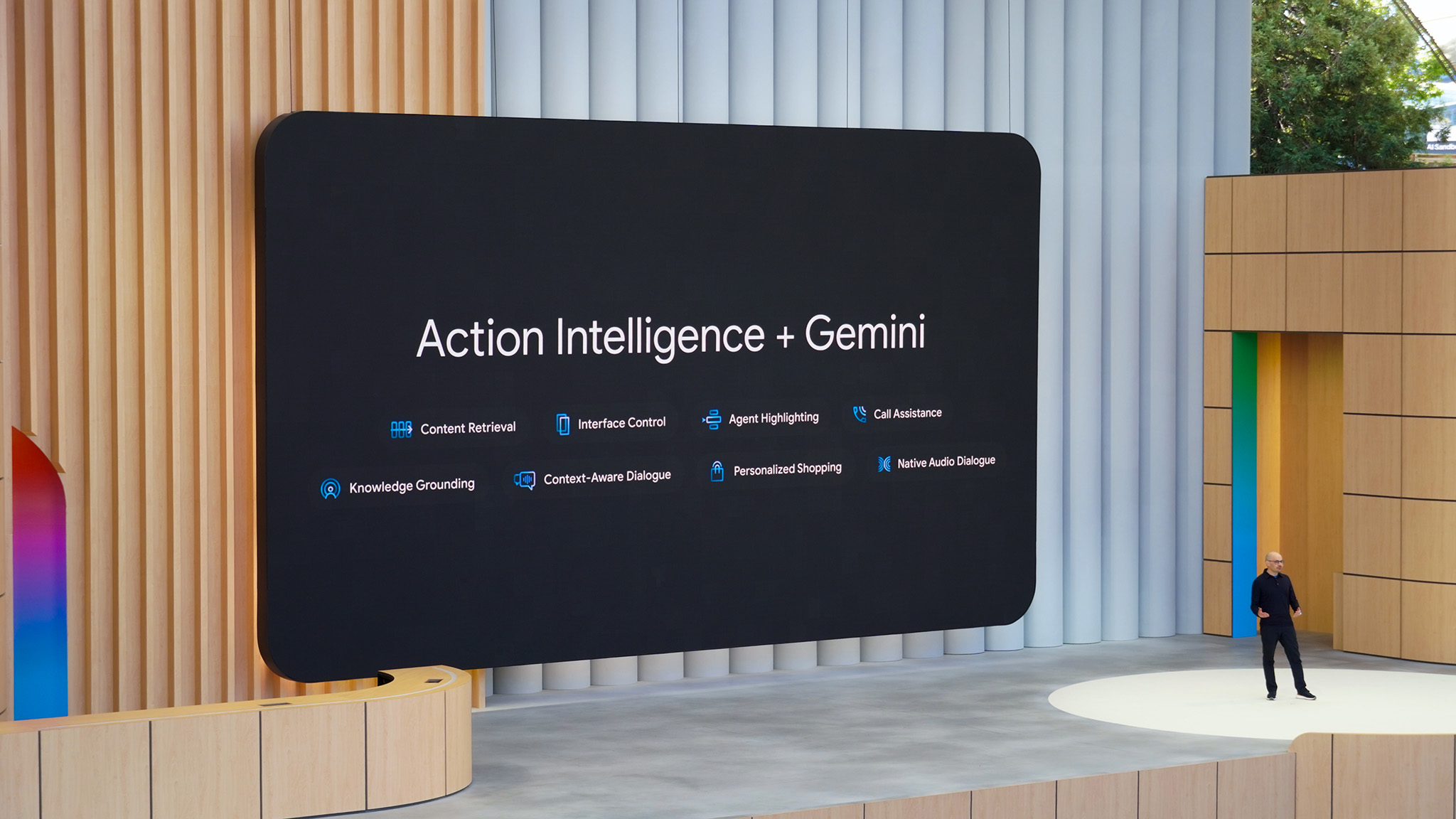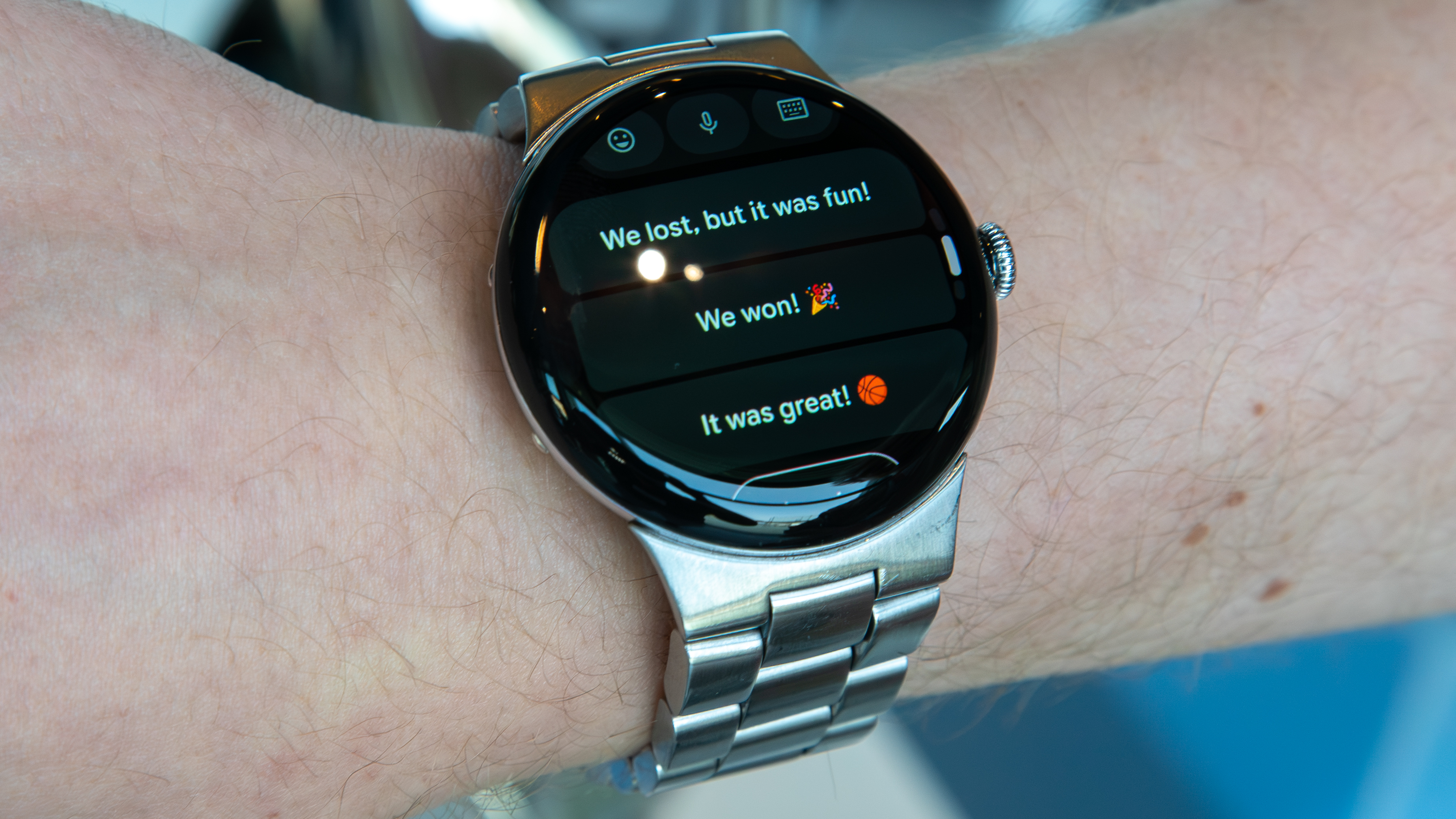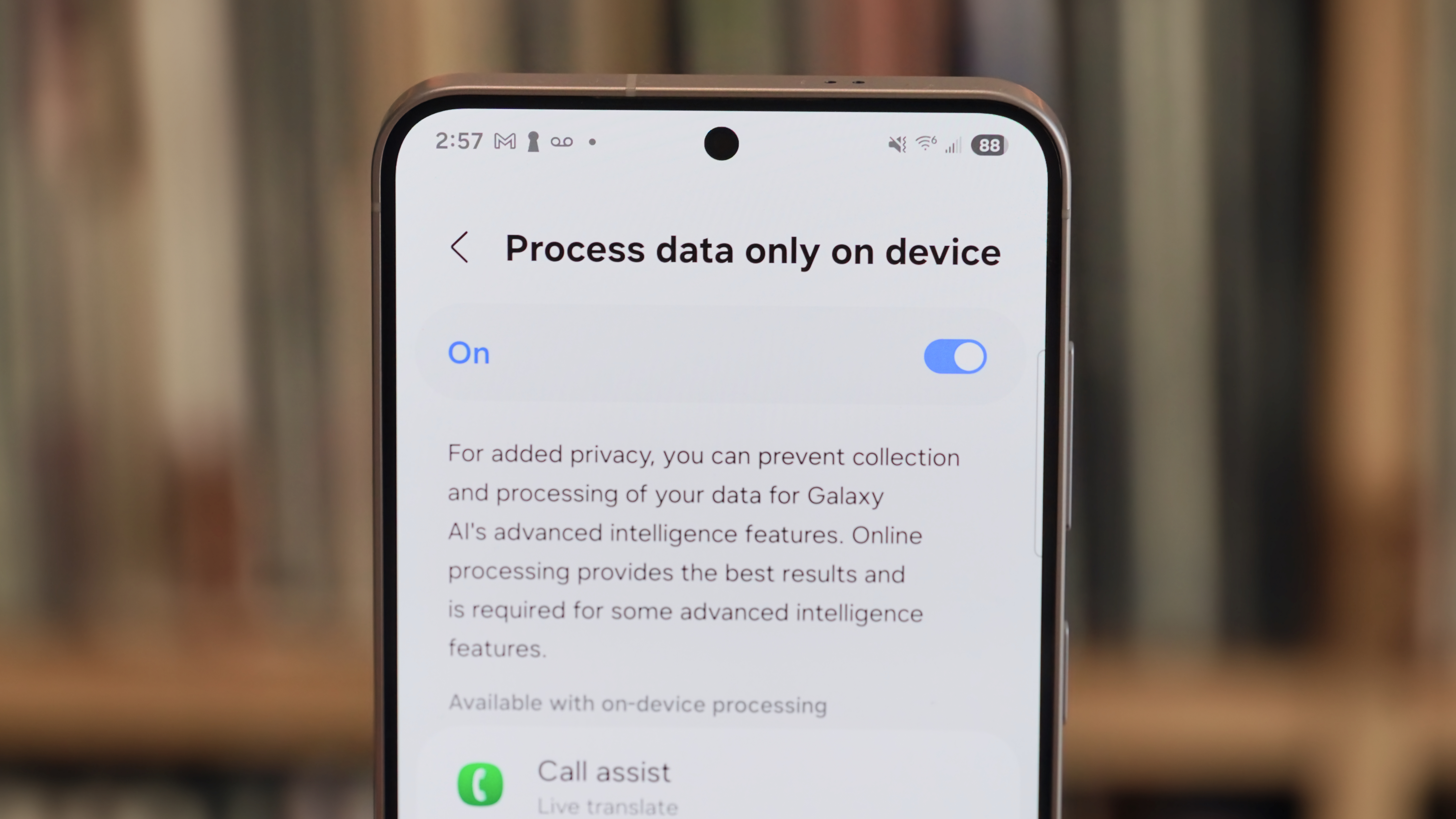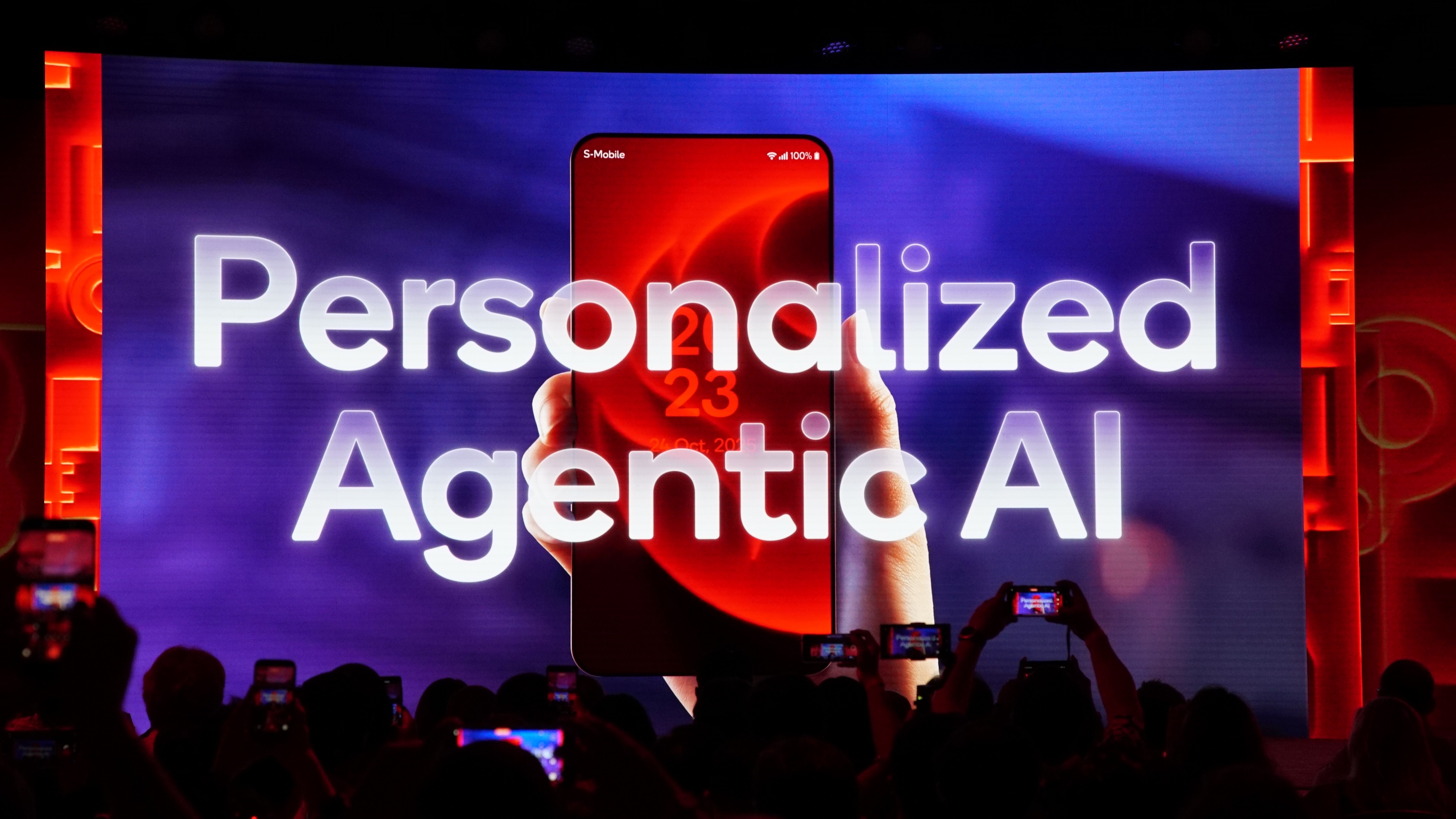What is on-device AI processing, and why is it important?
The era of edge computing.

Get the latest news from Android Central, your trusted companion in the world of Android
You are now subscribed
Your newsletter sign-up was successful
Imagine a world where your phone anticipates your needs before you even express them, where your fitness tracker tailors your workout routine in real-time, or where your smart home adjusts the temperature according to your mood. This future is closer than you think, thanks to the growing power of on-device AI processing and Agentic AI.
But what exactly is on-device AI processing? In simpler terms, it means running artificial intelligence algorithms directly on a device, such as your smartphone or smartwatch, rather than relying on remote servers in the cloud. This local processing unlocks a range of benefits that are transforming the way we interact with technology.
Many of the new AI features you hear so much about use on-device processing. Both Samsung's Galaxy AI and Google Gemini utilize specially designed microprocessors and phone hardware to run features locally, although the exact requirements are still somewhat unclear.
For example, Samsung offered the full suite of Galaxy AI features across the entire Galaxy S24 line, but Google didn't provide the same access to local processing on the smaller Pixel 8, which has less RAM. It's speculated that 12GB of memory is required to process a large language model (LLM), but neither Samsung nor Google has confirmed this.
In any case, "flagship" phones come with all the hardware you need for on-device AI processing built right into the chipset.
Why does on-device AI matter?

The shift towards on-device AI processing brings several key advantages:
- Enhanced Privacy: By keeping user data on the device itself, on-device AI minimizes risk and ensures greater user control over personal information. This is especially important for sensitive data like facial recognition or health records.
- Faster Performance: Cloud-based AI relies on sending data back and forth between your device and a server. This communication may introduce latency, resulting in delays in response times. On-device AI eliminates this delay, leading to a smoother, more responsive user experience.
- Offline Functionality: Not everywhere has reliable internet access. On-device AI allows AI-powered features to work even when you're offline. Imagine using voice commands to control your smart home while camping, or translating languages on the go without needing a data connection.
- Improved Security: Since data processing happens locally, on-device AI reduces the attack surface for hackers. This is crucial for applications dealing with sensitive information, like financial transactions or medical diagnoses.
- Power Efficiency: Constantly transmitting data to the cloud can drain your battery. On-device AI processing reduces reliance on the cloud, leading to improved battery life on your devices.
Because of these benefits, on-device AI is already making waves in various industries. On your phone, facial recognition for unlocking, voice assistants like Siri and Google Assistant, and personalized camera filters are all powered by on-device AI.
Get the latest news from Android Central, your trusted companion in the world of Android
On-device AI allows smart speakers to understand your voice commands more accurately and personalize your home environment based on your preferences and habits. Fitness trackers can analyze your movement patterns and heart rate data in real-time to provide personalized coaching and activity recommendations.

Outside the general consumer market, on-device AI is also at play in ways you may not have considered. Self-driving cars rely heavily on on-device AI for real-time object recognition, pathfinding, and collision avoidance. In factories and assembly plants, on-device AI allows connected devices to make decisions locally, optimizing performance and reducing reliance on centralized servers.
If a "smart" computer can make a difference, doing it locally is preferred. It's faster, less dependent on "outside" forces like internet connectivity, and allows for easier corrections.
The future of on-device AI

The potential of on-device AI processing is huge. As device processors become more powerful and AI models become smaller and more efficient, we can expect even more sophisticated applications to emerge.
Possibilities include better context-aware computing, where your phone anticipates your needs based on your location, time of day, and past behavior. It could automatically adjust settings, recommend apps, or provide relevant information without you even asking.

AI could analyze your preferences and habits across various applications, offering a truly personalized user experience that adapts to your evolving needs. It can also make security features more robust — AI could better look for anomalies during fingerprint detection or facial scanning. You wouldn't want features like these to work via the cloud.
On-device AI processing is still in its early stages, but it will play a major role in shaping the future of technology. By offering greater privacy, faster performance, and improved security, on-device AI paves the way for a more intelligent and user-centric future.

Jerry is an amateur woodworker and struggling shade tree mechanic. There's nothing he can't take apart, but many things he can't reassemble. You'll find him writing and speaking his loud opinion on Android Central and occasionally on Threads.
You must confirm your public display name before commenting
Please logout and then login again, you will then be prompted to enter your display name.
